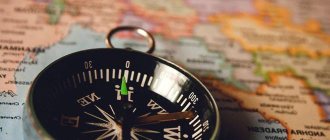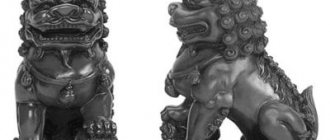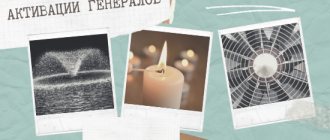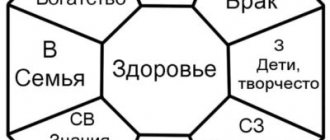- Definition of Qi
- Feeling of Qi
- Directions of Qi Development
- Effective Qi Management
- Accumulation of Qi energy
- Chinese Qi
Qi is life energy. It is as realistic as anything material. The word "qi" means ether. True, you won’t be able to touch it, but it is possible to feel and learn to control Qi. The key to a healthy and long life is the proper circulation of energy in the body. Qi is the energy of life, the power that fills the Universe.
Definition of Qi
Chinese philosophers and physicians define Qi energy as one of their fundamental concepts. Every person, material objects, corners of space are permeated with Qi energy. Any action, love, strength cannot do without the participation of vital energy. Balance and constant flow of Qi are associated with health and human activity. Both physical health and emotional and psychological state depend on its balance. Qi energy is classified into the following types:
- innate Qi, which determines genetics – passed on by parents at conception;
- Qi energy from the air – through breathing the body is filled with life energy from the air;
- Qi from food - when food enters the stomach, Qi energy is released, which is converted through the spleen and fills all organs;
- Protective Qi energy – immunity against harmful influences.
Innate Qi is stored by the kidneys, but the resource is subject to depletion. Factors such as work pressure, stress, and the use of any stimulant drugs or drinks have a negative impact on Qi. And following the correct daily regimen and drinking enough clean water every day contribute to its preservation. The air condition also affects. Dirty air worsens the human body's resistance to diseases and harmful manifestations. Healthy food enriches a person with vital Qi energy. Therefore, it is so important to eat natural foods, especially fresh ones, excluding dyes, preservatives and artificial additives. Human energy, protective Qi, surrounding our body helps regulate the body's protective forces.
Read our article “A rosary made of 108 beads: symbolism and practical application.”
Japanese character strength
According to the accepted version, hieroglyphs were brought to Japan by Buddhist monks. Chinese writing was successfully assimilated on the islands, since the Japanese did not have their own writing at that time. Then their own Japanese characters appeared, based on Chinese pictograms. The sign for “strength” in Chinese and Japanese is identical, only the spelling differs.
Examples of usage in the literal sense:
- Physical strength - 体力 (kanji - tairyoku).
- Rickshaw – 人力車 (jinrikishya).
- strength, power – 強力 (kyou:ryoku).
In other meanings:
- Effort or effort – 努力 (doryoku).
- Ability and skill – 能力 (no:ryoku).
- Cooperation – 協力 (kyou:ryoku).
Description
The first part denotes spirit, mood and disposition, soul. The second part is interpreted as power, strength, both physical and spiritual, moral. Therefore, the pictogram is also translated as “strength of spirit.”
Writing rules
The pictogram 刀 (chikara) is written with two dashes, which can be found in other Japanese words. The kanji for "strength" can also be written as ryoku, riki.
Feeling of Qi
How to feel Qi energy? Easily. Anyone can feel their Qi energy. With the help of a simple awakening exercise, which allows you to sense how Qi moves, that is, Qi undergoes awakening, and then Qi begins to develop. The mixing of heavenly and earthly essence occurs automatically and balances all components of the “I”. You should:
- stand so that there is a 45cm distance between your feet;
- bend your legs slightly at the knees and relax;
- the upper limbs with palms spread out to the sides should form a cross;
- remain in a state of closed eyes for at least ten minutes;
- ask “what feelings overwhelm me”, realize how Qi energy flows through me.
Even a debutant can do this. The life energy Qi is very important for humans. You can move to a different level of life by working correctly with this energy, in other words, figure out what kind of Qi energy is and how best to develop it. You need to consciously accumulate and waste energy and the power of Qi. Chi energy is used for various purposes. This manifests itself through the practice and development of Qi. Regularly doing exercises during which you feel the awakening energy of Qi leads to awareness of the process.
What is Qi, Ki, Energy: without cuts and mysticism
In this short article I would like to dispel the mystical overtones that surround the term “Energy” and bring some clarity. Many practitioners and those interested in the topic of “development and accumulation of Energy” introduce too much fog into this word, which, of course, makes it difficult to understand the essence of the processes they are engaged in. The same situation is observed among teachers of traditional self-development systems (including Chinese qigong). As a result, general misconceptions result in speculation in mysticism and increased misunderstanding among practitioners.
Since the term “Energy” is found in the vast majority of self-development systems, its understanding is fundamental.
Everything described in this article is part of the methodology of the “Wu Tao Pai” school of qigong and self-development, and therefore is a proven result of practice, and not theoretical speculation.
So, let's begin!
“Qi” from Chinese can be roughly translated into Russian as “Energy”. However, this translation is conditional. Why? The fact is that the term came from Chinese culture, and like many words that have a close connection with the cultural environment, it is difficult to adequately translate it into another language in which such a term has never existed. But you and I are not interested in the cultural and morphological subtleties of this word. Unfortunately, many practitioners begin to concentrate on these subtleties. We are interested in the use of this term precisely in the context of psychophysical practices.
At the Wu Dao Pai school, one of the main teaching methods is the so-called “question method”. Therefore, to better understand the meaning of "Qi", let's start with questions. What is Energy? What is it like?
Energy can be kinetic and potential, electrical and thermal, wave, renewable and natural, mechanical and biochemical, etc.
You can name a huge number of types of energy, and here it is important to note two features:
- Almost everything that we described has no connection with mysticism or esotericism. These are simple terms that anyone can understand.
- The listed types of energy are very different from each other and are often directly opposite in meaning and meaning, depending on the context. All these terms describe certain phenomena of different nature.
Thus, let's try to answer - what is energy?
Energy is a descriptive, collective term that describes phenomena of various kinds. Moreover, there is absolutely nothing mystical or esoteric in this term. It is important. After all, mysticism begins where understanding ends, in order to fill the resulting void. Since Energy is an analogue of Qi in European culture, we can say that Qi is also a collective and descriptive term that can mean very different things, depending on the context in which the term is used. But what is usually described with this term?
For example, the Chinese will literally call any change in the weather: “Change in the qi of the sky.” Or if the weather is bad, he will say, “The qi of the sky is bad.” However, he will not mean that something mystical or magical happened. He simply describes the change in the weather situation in this way. Also, if a patient in China comes to a traditional Chinese medicine clinic and complains about a problem, for example with the stomach. After diagnosis, the doctor will most likely tell him that the stomach qi is bad, excessive or insufficient, which is why it hurts. Thus, the doctor will simply describe the problem without putting a single bit of magic into his words. The situation is also the same when a student begins to practice meditation. After some time, he comes to the teacher and says: “My body hurts, I can’t practice for a long time.” Or perhaps the student will ask: “Various new sensations have appeared in the body. What is this?". And then the teacher in both cases will simply tell the student - this is the qi that is changing, keep practicing! In this way, the student's rational mind receives the "answer" and calms down for a while, allowing the student to continue practicing. Although, of course, no real answer was actually given. Well, what's the point of a teacher explaining all the subtleties of the mental and biochemical processes that occur during meditation practice? Perhaps he himself does not know these subtleties. That is why it is simple and convenient to say: “This is qi - don’t pay attention! Keep practicing!
Also a Chinese doctor, what can he tell a semi-literate worker about his problem? Does it make sense to explain all the intricacies of the stomach? No, of course, it’s much easier to say that it’s all about bad qi.
Thus, we have found out that Qi is a really convenient term with which one can describe many processes occurring in the body and psyche of a practitioner during the practice of meditation.
What is Qi in the context of psychophysical practice?
You've probably heard of this idea: Man is a self-healing system. This means, and few would argue with this, that the human body is capable of repairing itself. So, let us then answer a simple question: “If a person is a self-healing system, why do we get sick? Why do various problems not only arise in us, but, more importantly, develop into serious diseases? Why is a Person often unable to quickly cope with a problem?
Of course, each of you can name a dozen different reasons. But let's look at the reasons that depend on our body.
And there is only one reason - lack of energy. Moreover, we are talking about two types of it, because psychophysical practices involve working with the body and psyche:
- Qi as body energy or biochemical potential.
Our body constantly produces a huge amount of biochemical resources: hormones, amino acids, various cells and minerals. This biochemical resource is nothing more than the building material of our body. The body uses biochemical material to eliminate problems and patch holes. In other words, if the body detects a problem-disease in itself, with the help of special recovery mechanisms, the biochemical potential is directed by the body to eliminate this problem. If this potential is not enough, the problem cannot be eliminated. Imagine that if you are building a house and you run out of cement, bricks—you don’t have enough building material—the construction stops, even if you know what and how you need to do. Thus, a lack of energy is a lack of production of biochemical material by your own body. And this is one of the reasons why a person gets sick and diseases have the opportunity to develop - the body does not have enough building material.
- Qi as psychic potential or energy of attention.
Attention is a type of energy related to the human psyche. Lack of Attention also gives rise to illness. Why?
Attention has two main functions:
- Record signals, notice.
- Strengthen metabolism in the area targeted.
If a person does not notice something, he is called inattentive. It is attention that is responsible for our ability to notice certain processes and phenomena. Thus, attention is a function of the psyche that “notices” and records any signals. Moreover, just as it records signals from the external world, it also notices signals from the internal world.
These could be your thoughts, sensations, emotions or signals from internal organs, some internal problems.
How exactly does this happen?
Attention acts like a locator - it picks up signals from the area to which it is directed. For example, if you direct your attention to a particular object, you will begin to record all the signals associated with this object. If you hear a dog barking, your attention will focus on this sound, you will turn your head and see the dog, evaluate its aggressiveness, size, reasons for barking, and most of these processes will happen unconsciously. Having assessed what you see, you have the opportunity to react adequately (if a dog runs towards you and is unfriendly, you defend yourself; if it sits behind a fence, you simply move on) The same thing happens in our body. The body gives a sign through pain or any other signal that some area of your body is not okay. You unconsciously direct your attention there and the body gets the opportunity to record not only the violation itself, but also its causes, volumes, etc. All this helps the body to adequately respond to the problem and eliminate it. Just like with barking and dogs.
Attention has another interesting function. Attention strengthens and activates processes in the area of its application. For the body, activation of processes means increased metabolism in the place where attention comes. Metabolism is the supply of biochemical material, increased blood circulation and more. Here we get to an interesting property of attention - Attention controls the blood. Blood performs a transporting function in our body. This means that blood helps useful substances enter one or another area, and waste products leave this area. Thus, blood circulation and blood supply is one of the main factors in the health of a particular organ or area in the body. A person who controls his attention controls his own biochemistry (how your body produces building material), controls the blood of his body. That is, if attention is poorly developed, then this directly affects blood circulation, metabolism and detection of signals from problem areas in the body.
As a result, with the help of special exercises, you can learn to accumulate and develop Energy (Biochemical potential of the body and Attention) to help yourself be healthy. In addition to those described in the article, there are several other types of energy that are worked with in the process of meditation practice. However, they are all psychophysical in nature.
In subsequent articles I will try to talk about exactly how Energy is accumulated and developed through various practices and exercises and what results this leads to for the practitioner. We will also talk in detail about attention, because what is written here is just the tip of the iceberg.
Good luck in self-discovery! And remember, there is nothing mystical about meditation practice, so seek understanding!
Directions of Qi Development
Qi energy, how to develop it? There are several directions of influence of Qi development:
- mind;
- bodily shell;
- souls.
Human Qi, which gives power, soul - disembodied self and energy resource. The development of Qi brings positivity to all processes. To develop the important energy Qi, harmonization of all three directions is necessary. Based on this, the maximum development of Qi, vital force, is facilitated by a balanced diet, optimal physical activity and spiritual practices. A person who strives to understand his “I” can develop Qi and realize himself completely.
Why are there different forms of writing the character qi?
If we turn to many modern dictionaries, we will read in them that the character 气 is a simplified form of the character 氣.
Simplified characters are used in the PRC, Malaysia and Singapore after a reform carried out in the 1950s by the PRC government. Traditional (full) characters are officially accepted and widely used in Taiwan, Hong Kong and Macau.
However, the first and one of the most authoritative dictionaries of characters, the Showen Jiezi, compiled in the 2nd century AD, contains both characters 气 and 氣, with Chinese commentators arguing that the character 气 is the more ancient of the two.
Effective Qi Management
Many people are concerned about the question of how to manage Qi energy, how to effectively manage such energy. There are basic rules by following which you can manage Qi energy:
- can be accumulated and regulated by appropriate exercises;
- people fixated on the speed of obtaining results are not able to achieve harmonious development;
- The principle of grounding (massages, salt baths) should be used by those who feel trembling in the limbs.
In the body, Qi moves along a network of meridians. They are determined only by the corresponding devices. Chinese medicine suggests the subcutaneous location of 12 meridians. The flow of Qi follows a certain path. There are several ways to manage Qi as vital energy:
- meditation - where the mind can move, develop, control energy, like any controlled process;
- breathing practices - thanks to proper diaphragmatic breathing of Qi, vital energy will circulate effectively;
- bodily techniques and procedures - use special exercises and points to regulate the circulation of Qi.
Accumulation of Qi energy
Before you develop Qi energy and how to manage it, you should think about how to accumulate this life energy.
There are various exercises and techniques for accumulating Qi.
Read our article “Who is Aleister Crowley?”
Let's take a closer look:
- Use visualizations:
- “I” and Qi are a charge, like an electric current penetrating through trees, the sun, a cloud;
- “I” and heavenly Qi, which envelops and how its power passes into my internal organs;
- Qi energy and “I” interact through the pores;
- “I” lie with my mouth half open and Qi, its life force flowing inside in a multi-colored stream;
- “I” and objects - the idea of how Qi, as various objects, passes from the throat to the stomach and leaves through the point of the lower Dian-Tian;
- others.
- Five Elements Practice – where Qi wants to move through wood, fire, air, metal and water to the liver, heart, spleen, lungs and kidneys.
- A Qi energy exercise technique where an imagined beam of bright light penetrates the “third eye.”
- Voice accumulation - imagine how Qi travels through the body with changes in the sound and color of the flow.
- The sound through which Qi, its power fills a person through the skin.
The choice of savings methods is varied. The key to a healthy life is energy that is regularly accumulated and used correctly.
Chinese Qi
The Chinese concept of energy is any external energy manifestation. For modern times, Chinese Qigong is important, as it affects health and longevity. The Chinese concept is that a certain amount of energy is needed for the functioning of each organ. Chinese Qigong - breathing exercises. Chinese Qi energy has been influenced by Taoist, Buddhist, Confucian practices, medicine and a variety of martial arts. You can live without knowing the energy of Qi, yourself. But by practicing Chinese Qigong, you can feel like the master of destiny through the development of Qi. For example, you can get answers to the questions:
- Do I realize how I live;
- Do I have enough energy to achieve my goals?
- can I get rid of harmful things;
- how strong am I to complete the project;
- Is it possible for me to realize my dream;
- will I have the courage to throw off the ballasts;
- can I become financially independent;
- am I ready to develop;
- Will I be able to balance my energy centers?
- can I inspire others, do as I do and manage life.
Read our article “Red jasper stone against all adversities.”
You can find out what qi energy is, how to develop and manage it, study Chinese Qigong, how to develop qi with its help, and also get information about other interesting aspects at the Arcanum Center. It is important to develop your energy and use it to improve the quality of your existence, and experienced professionals can help with this.
Using this energy
The most spectacular examples of the use of Chi energy are in martial arts: the master is able to withstand many opponents, defend himself without weapons, or perform complex movements and move quickly. Eastern martial arts systems attach great importance not only to physical training, but also to the ability to control the flow of vital force in your body, directing them in the right direction.
Chinese medicine healers spend years training in the ability to sense and change the direction and force of energy movement in the patient's body. Chinese acupuncture and general health practices in Qigong or Taijiyuan are based on theories about Qi.
The teachings of Feng Shui claim that with the help of the vital force circulating outside the human body, one can achieve a comfortable and correct life. The layout of a home, the ability to attract wealth and good luck into one’s life, and to increase the efficiency of training or professional activities require adherence to rules that ensure the uniform and unhindered flow of Qi where a person lives.
In any of the above cases, flow distortion (slowdown, stagnation or too high intensity) leads to process disruptions. At the same time, a person loses physical strength and concentration, gets sick, or is haunted by failures. The ability to control energy flows plays a large role in Feng Shui, healing, and martial arts.









